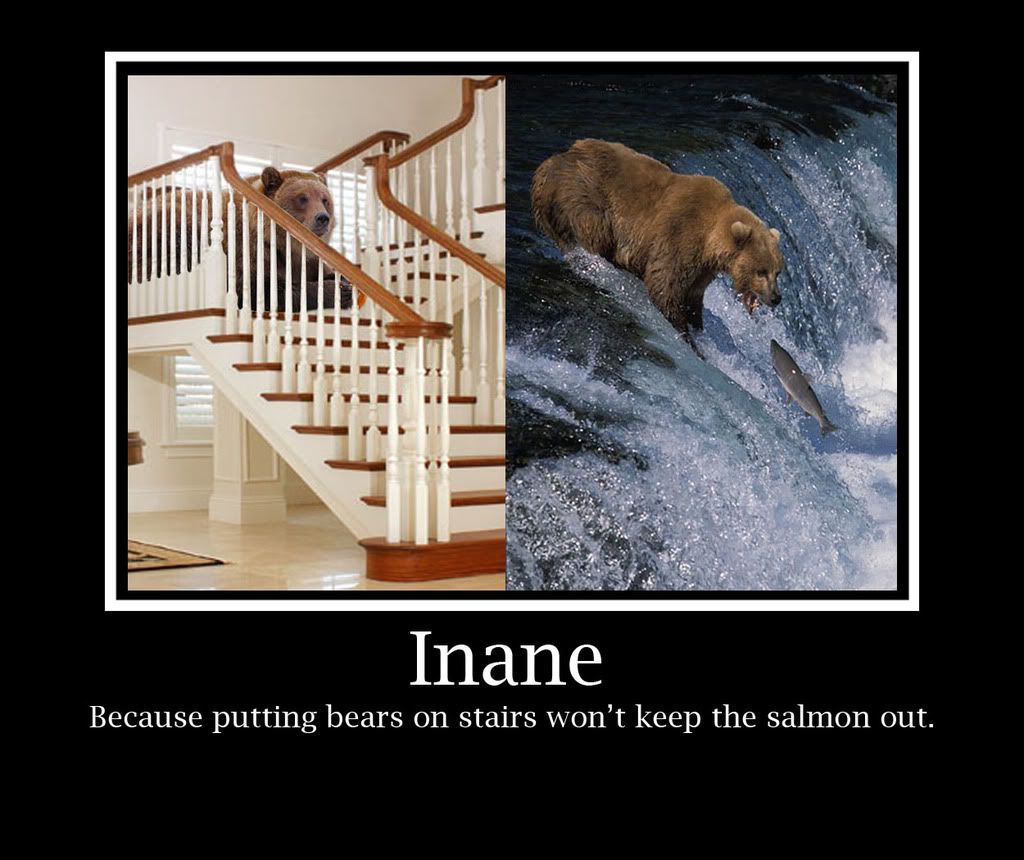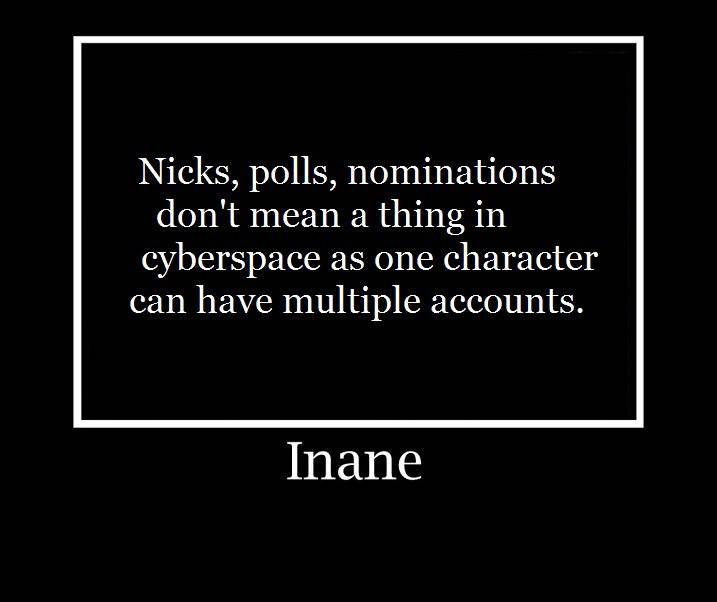This is a continuation of an earlier poll, http://is.qd/NhYqGt based on a CNA article.
GE: Opposition fielding better qualified candidates for GE 2011
source: http://www.channelnewsasia.com/stories/singaporelocalnews/view/1123837/1/.html
SINGAPORE: For this coming General Election, opposition parties have attracted better qualified candidates and some of whom have credentials similar to those of the ruling People Action Party's (PAP) candidates.
Five of the National Solidarity Party's (NSP) candidates have postgraduate degrees, and its current slate is over double the size of the team it fielded in the last General Election.
Husband and wife team, Tony Tan and Hazel Poa, from the National Solidarity Party were both government scholars. They do not believe that meaningful change can come from within the system.
"By joining opposition we actually have more to contribute. First off, a-one party system is not sustainable over the long-term, sooner or later there will come a time when we need a viable alternative and we need to build the foundation to that now," said Ms Poa.
The NSP is expected to field 24 candidates compared to 11 candidates it fielded in 2006.
For the Workers' Party, qualified candidates like lawyer Chen Show Mao, who has degrees from Oxford, Harvard and Stanford universities, make up its largest team since the 1988 elections.
Worker's Party chairman Sylvia Lim, said: "We would do our best to give Singaporeans the best choice that we can at every election. So I think over time I believe that the calibre of our candidates has improved, and we will continue to work at, I mean that is our aim."
Mr Chen, who is a partner in international law firm Davis Polk and Wardwell LLP, joined the opposition because he felt a dominant party in Parliament is unhealthy in Singapore.
He said: "We need to grow this opposition so that in time it will be in that position and it will be able to competitively provide some real checks and balances on the party that's in government. That's really what I see myself as doing, like everybody else we're here to give Singapore a nudge in the direction we feel it ought to go."
Gillian Koh, Senior Research Fellow, Institute of Policy Studies, NUS, noted that the opposition parties have recognised the value of adding better qualified candidates to their portfolio for the upcoming election.
She said: "When it comes to the PAP, it's almost taken for granted that their candidates have stellar academic performance, very strong track record in their careers. So I think the opposition parties know that.
"In the past, they would present people who have done a lot of work on the ground, or people who are small-time businessman, and they recognise that they'd like to add to their portfolio, people who are more like the PAP."
But the parties have refrained from flaunting these candidates, stressing core values over paper qualifications.
Goh Meng Seng, who is NSP's Secretary-General, said: "We always try to maintain a certain diversity when we talk to people. Qualification is not the main criteria, the main criteria is a passion to serve. Secondly, politics must be seen as a public service not for personal wealth, it's a public service. And thirdly, of course, it's a commitment to the people."
For the Singapore People's Party, two candidates in its seven-member team have Masters degrees compared to the 2006 elections when none of its eight candidates had postgraduate degrees.
Wilfred Leung, Assistant Secretary General, Singapore People's Party, said: "Across the party we have a mix of different people of different strengths, we cannot say that we only want all the high-level, senior management and professionals, but again it's like a body with different parts so we do not limit what kind of candidates or what kind of people that we have in the Parliament, it's a wide range of people that we have."
Observers say the improved slate could increase the opposition's credibility and even give them momentum in the elections and beyond.
Dr Suzaina Kadir, Senior Lecturer at Lee Kuan Yew School of Public Policy, said: "It certainly causes us to pause and this is I think an important point even if it may be a symbolic one for the opposition because it at least questions earlier public perceptions that the opposition are unable to attract quality candidates, and that is something that could be an opportunity for them."
Some political watchers are of the view that this opportunity could translate into actual votes for the opposition and lead to closer fights for the General Election.
And even though majority of Singaporeans could still vote for the party that are most familiar with and one that has been tried and tested, this trend of stronger opposition candidates may well point to a maturing society that values more debate and discussion.
- CNA/fa
Previous Poll results (20Apr2011 to 26Apr2011):

GE: Opposition fielding better qualified candidates for GE 2011
source: http://www.channelnewsasia.com/stories/singaporelocalnews/view/1123837/1/.html
SINGAPORE: For this coming General Election, opposition parties have attracted better qualified candidates and some of whom have credentials similar to those of the ruling People Action Party's (PAP) candidates.
Five of the National Solidarity Party's (NSP) candidates have postgraduate degrees, and its current slate is over double the size of the team it fielded in the last General Election.
Husband and wife team, Tony Tan and Hazel Poa, from the National Solidarity Party were both government scholars. They do not believe that meaningful change can come from within the system.
"By joining opposition we actually have more to contribute. First off, a-one party system is not sustainable over the long-term, sooner or later there will come a time when we need a viable alternative and we need to build the foundation to that now," said Ms Poa.
The NSP is expected to field 24 candidates compared to 11 candidates it fielded in 2006.
For the Workers' Party, qualified candidates like lawyer Chen Show Mao, who has degrees from Oxford, Harvard and Stanford universities, make up its largest team since the 1988 elections.
Worker's Party chairman Sylvia Lim, said: "We would do our best to give Singaporeans the best choice that we can at every election. So I think over time I believe that the calibre of our candidates has improved, and we will continue to work at, I mean that is our aim."
Mr Chen, who is a partner in international law firm Davis Polk and Wardwell LLP, joined the opposition because he felt a dominant party in Parliament is unhealthy in Singapore.
He said: "We need to grow this opposition so that in time it will be in that position and it will be able to competitively provide some real checks and balances on the party that's in government. That's really what I see myself as doing, like everybody else we're here to give Singapore a nudge in the direction we feel it ought to go."
Gillian Koh, Senior Research Fellow, Institute of Policy Studies, NUS, noted that the opposition parties have recognised the value of adding better qualified candidates to their portfolio for the upcoming election.
She said: "When it comes to the PAP, it's almost taken for granted that their candidates have stellar academic performance, very strong track record in their careers. So I think the opposition parties know that.
"In the past, they would present people who have done a lot of work on the ground, or people who are small-time businessman, and they recognise that they'd like to add to their portfolio, people who are more like the PAP."
But the parties have refrained from flaunting these candidates, stressing core values over paper qualifications.
Goh Meng Seng, who is NSP's Secretary-General, said: "We always try to maintain a certain diversity when we talk to people. Qualification is not the main criteria, the main criteria is a passion to serve. Secondly, politics must be seen as a public service not for personal wealth, it's a public service. And thirdly, of course, it's a commitment to the people."
For the Singapore People's Party, two candidates in its seven-member team have Masters degrees compared to the 2006 elections when none of its eight candidates had postgraduate degrees.
Wilfred Leung, Assistant Secretary General, Singapore People's Party, said: "Across the party we have a mix of different people of different strengths, we cannot say that we only want all the high-level, senior management and professionals, but again it's like a body with different parts so we do not limit what kind of candidates or what kind of people that we have in the Parliament, it's a wide range of people that we have."
Observers say the improved slate could increase the opposition's credibility and even give them momentum in the elections and beyond.
Dr Suzaina Kadir, Senior Lecturer at Lee Kuan Yew School of Public Policy, said: "It certainly causes us to pause and this is I think an important point even if it may be a symbolic one for the opposition because it at least questions earlier public perceptions that the opposition are unable to attract quality candidates, and that is something that could be an opportunity for them."
Some political watchers are of the view that this opportunity could translate into actual votes for the opposition and lead to closer fights for the General Election.
And even though majority of Singaporeans could still vote for the party that are most familiar with and one that has been tried and tested, this trend of stronger opposition candidates may well point to a maturing society that values more debate and discussion.
- CNA/fa
Previous Poll results (20Apr2011 to 26Apr2011):





